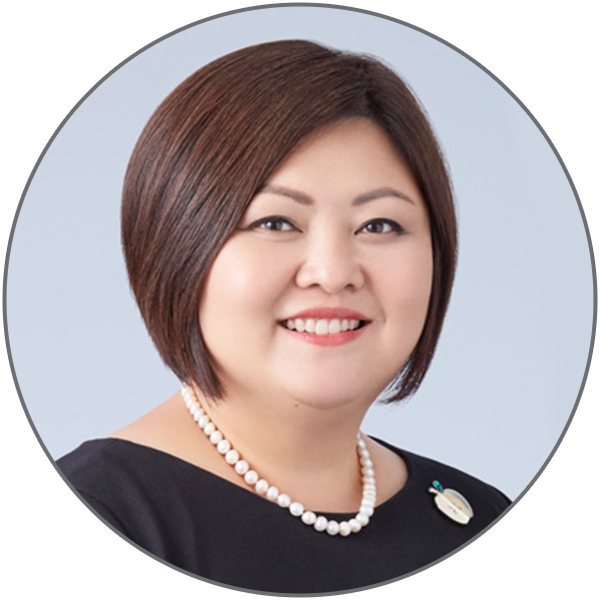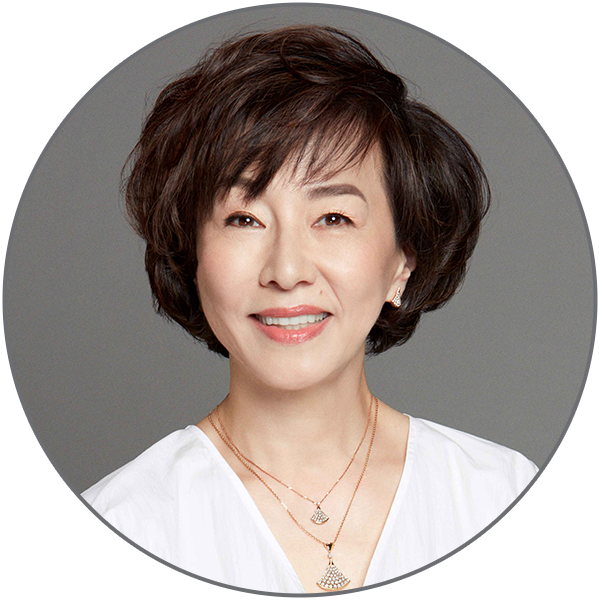Tipping Point for Change
Over the past decade, Japan has gone from less than one percent of directors at Japanese companies being female to about 10 percent at many of the larger organizations. How Japanese companies might be encouraged to overcome their apparent reluctance to welcome women into their boardrooms was the topic of a November 15, 2021, ACCJ virtual event, entitled Injecting Diversity through Outside Directors.
Injecting diversity into corporate Japan through outside directors
Listen to this story:
Over the past decade, Japan has gone from less than one percent of directors at Japanese companies being female to about 10 percent at many of the larger organizations. And while that figure represents progress, it is by far an inferior diversity-and-inclusion (D&I) performance than typically can be seen at companies in the United States, Europe, and other parts of the world. Some of the largest corporations in France, for example, have boards on which women account for 45 percent of the directors.
How Japanese companies might be encouraged to overcome their apparent reluctance to welcome women into their boardrooms was the topic of a November 15 virtual event, entitled Injecting Diversity through Outside Directors. It was hosted by the American Chamber of Commerce in Japan Women in Business Committee and moderated by corporate governance consultancy Third Arrow Strategies LLC founder Tracy Gopal. The discussion drew on the experience and insight of three women who are committed to bringing change to Japan:
- Jin Montesano, executive officer and chief people officer at LIXIL
- Jenifer Rogers, ACCJ president and general counsel for Asia at Asurion
- Kaori Sasaki, founder and chief executive officer of ewoman, Inc.
In her introduction, Gopal pointed out that women are an increasingly critical part of Japan’s workforce and are needed in boardrooms to help ensure the long-term stability of the national economy. Having women on corporate boards also encourages other female employees to make sure that their voices are represented. It also helps attract the best and brightest.
At present, Japan’s corporate code merely suggests that company boards be balanced in their composition, including in terms of gender. However, this request of sorts cannot sufficiently move the needle when men have deep roots in the corporate culture. Thus women such as Montesano, Rogers, and Sasaki have “a responsibility to be the great change-makers,” Gopal said.
Relative Progress
The change that has been witnessed in Japanese boardrooms might be considered quite rapid when one takes into consideration many corporations’ reluctance to evolve. But it looks poor in comparison with other parts of the world that have really “accelerated their game,” Rogers noted.
Her experiences on the boards of Kawasaki Heavy Industries, Ltd., Mitsui & Co., Ltd., and Nissan Motor Co., Ltd. have reinforced the importance of the task, and her presence is important on several levels. Female staff have approached her and expressed gratitude that she is changing the company by altering the face of the board. Simultaneously, major investors are keen to see diversity on a board and a willingness to accept non-traditional voices.
Beyond the boardroom, another area of evolution that can be seen is in a company’s internal dynamics.
“We know that diversity is a driver of innovation,” Rogers said. “I personally feel that it’s my duty to speak up and share my views, because that is why I have been chosen to join a board as an outside director. And what I’ve found at organizations on whose boards I serve is that, whereas I used to be the first to ask a question or to share my viewpoint, now I can’t get a word in edgewise.”
Rogers said that what she really likes is how this change has created synergy with top management. “There are more obligations on external directors around sustainability, the codification of the corporate governance code, talking about diversity, and other issues at the board level.”
“Women are an increasingly critical part of Japan’s workforce and are needed in boardrooms to help ensure the long-term stability of the national economy.”
When that takes root, Rogers noted, it can trigger a cascade of change that runs down to every corner of the organization.
“I really think that, when female directors have a lot of confidence and are good communicators, they can truly be agents of change within the board dynamic.”
Yet, too often, a single minority voice on a board is not sufficient to bring about change.
Being the only woman is a difficult position in which to be, Rogers admitted. “What you must do is learn how to have influence and make an impact. For me, that means making friends with the other external directors, which allows me to have a much broader voice.”
One board on which she serves now has three female directors. This, she said, has resulted in a significant change.
“It has altered the dynamic, and we have now hit that magic number which shows there has been a general shift in the organization: it is committed to diversity,” she explained. “If you have three women, then you have enough representation to make a difference. Each woman feels comfortable with that level of diversity.”
Sustaining Change
For Montesano, three key components must be in place to make D&I a truly sustainable endeavor:
- A corporate culture that is genuinely more inclusive
- Credible and authentic leadership
- D&I-focused human resource policies and practices
She agreed with Rogers’ point about reaching a tipping point of minorities on a board, something that LIXIL has been keen to attain.
“Our D&I commitment was to achieve 50/50 gender equity on our board by 2030, and we are already at 30 percent,” she said. “At present, the board has three women. And while one might be [seen as] a quota to make women feel better, three normalizes the situation. Then you’re no longer having a conversation about gender; you’re actually having real conversations as a diverse board. And from there, you go from strength to strength.”
Immediately after being appointed LIXIL’s chief people officer, Montesano said she spent a lot of time examining data and conducting her own research to determine D&I best practices, as well as to tailor a strategy best suited to LIXIL. Her seat on the LIXIL board also enables her to act as a strong bridge between the board’s direction and the company’s D&I strategy.
“What I found is that you must focus on the I, or inclusion, not on diversity,” she said. “If inclusion is the goal, then diversity is the natural outcome.” This, she noted makes real D&I change much more sustainable. That determination has enabled LIXIL to formulate the hypothesis that drives its D&I agenda. The company crafted its approach by asking questions such as:
- How can an inclusive culture be created?
- How can managers demonstrate more empathy?
- How can people best be trained to practice inclusive behaviors?
- How can leadership embrace the actions needed to be genuinely inclusive?
- How can a company eliminate bias from policies, processes, and practices?
A key LIXIL initiative during the coronavirus pandemic has been to maximize flexibility in the workplace for women.
Of course, working from home—something that has been critical during the pandemic—was one element of this, but the company has also stepped up its self- and family-care policies. For example, 10 days have been added to maternity leave, and the entitlement has been made more flexible; an employee can now take the time off in half-day or even hourly increments.
Montesano also called for more women to take the plunge and actively seek promotion to serve on corporate boards. She said that she knows there are women ready to make their voice heard, because she meets them all the time.
“The number might seem small but, in absolute terms, it’s a pretty healthy size,” she explained. “For women who are considering it, I think it is really about putting your hand up to sit on this or that statutory entity internally, then joining outside non-profit boards, which are always looking for talented people.”
Montesano believes this can really accelerate things. “In my own company, my CEO is supportive of me sitting on an outside board. While many other companies may not have considered encouraging it, I hope they will. It would accelerate D&I across Japan and add more gender diversity to boards.”
Growing Curiosity
For ewoman founder Sasaki, there has been visible change in the 35 years since she started her first company, Unicul International. Over the past 26 years, Sasaki’s International Conference for Women in Business has been a catalyst for this change and is widely recognized as spearheading the D&I movement in Japan.
“Compared with 30 years ago, more women are in executive or leadership positions and, at the conference, they like to learn more about diversity, global issues, and how to climb the corporate ladder,” she explained.
Sasaki, who has been serving as an outside board member of corporations for 13 years—and currently sits on the boards of four companies—created the female board-member network called The Board. She noted that most companies continue to believe that they are diverse if they just reach a set number of female employees.
“Diversity is not just a gender issue; diversity of thought is very important for a company’s growth. We need to bring a new angle, a new direction of ideas into boardrooms.”
She added that the public, as well as ESG investors, are asking which companies are performing well on D&I. Such information often influences their investment decisions. But the current rankings only utilize the data which companies choose to make public, so they don’t accurately reflect the true D&I culture at these companies.
To remedy this situation, and to help companies determine the status of their own D&I efforts compared with their peers, Sasaki’s ewoman assembled a group of international experts to design the Diversity Index (DI). The DI measures the diversity of an organization by combining the numerical data with the attitudes and perceptions of every employee and executive through an online survey and exam. It not only reveals the true state of D&I in a company, it identifies training opportunities and serves as a recruiting tool.
Buying In
All three women concluded that the outlook is positive for women in senior positions and also, more broadly, for D&I at Japanese corporations.
Rogers summed it up: “The reality is that, for all companies in Japan, there is demographic pressure. It’s the external competitive market that is driving the use of that pool of talented women in Japan who are highly talented but, at present, underutilized.
“I believe that CEOs and CFOs are now really buying into it,” she added. “They can see how diversity can transform their organization and allow people to really bring their best self to work. The leaders have targets, are measuring, and are increasing disclosure. It really is an articulated priority.”
Third Annual ACCJ Shareholder Forum
After more than a year of operating during the coronavirus pandemic—and adapting to the changes it has brought forth—companies are facing another season of shareholder meetings. With vaccinations signaling that we may soon emerge from the crisis into a more familiar, although changed, world, leaders are able to focus on other critical areas, such as the environment and sustainability, as well as diversity and inclusion.
Focusing on active engagement and stewardship during the AGM season
Listen to this story:
After more than a year of operating during the coronavirus pandemic—and adapting to the changes it has brought forth—companies are facing another season of shareholder meetings. With vaccinations signaling that we may soon emerge from the crisis into a more familiar, although changed, world, leaders are able to focus on other critical areas, such as the environment and sustainability, as well as diversity and inclusion.
On June 16, the American Chamber of Commerce in Japan (ACCJ) Alternative Investment Committee (AIC) hosted the third annual ACCJ Shareholder Forum. Held virtually once again this year, the event brought together six speakers with expert knowledge of the fiduciary and regulatory landscape:
- Satoshi Ikeda, chief sustainable finance officer at Japan’s Financial Services Agency (FSA)
- Nicholas Smith, strategist at CLSA Securities Japan Co., Ltd.
- Paras Anand, chief investment officer for Asia–Pacific at Fidelity International Ltd. (FIL)
- David Baran, chief executive officer of Symphony Financial Partners (Singapore) Pte. Ltd.
- Alicia Ogawa, director of the Project on Japanese Corporate Governance at Columbia University
- Seth Fischer, chief investment officer at Oasis Management Company, Ltd.
The mission of the forum is to address the lack of public information about the existence of shareholder initiatives among listed companies in Japan. This year’s discussion included timely issues for active investors, such as environmental, social, and corporate governance (ESG), climate-change disclosures, the growing emphasis on diversity of boards, and the differing styles of engagement used to achieve successful outcomes.
“These days, lots of attention is focused on boards of directors and corporate governance,” AIC Chair Frank Packard said during his opening remarks. “Less attention is focused on active engagement and stewardship. It is this attention gap that the ACCJ seeks to address with this forum.”
“Active investor engagement can lead to constructive results, and we see that with the Toshiba investigative report. This increased transparency only happened because an actively engaged investor requested an extraordinary general meeting of shareholders,” he added, referring to the revelations in June that the manufacturing giant allegedly colluded with government officials to influence the outcome of votes at its 2020 annual general meeting (AGM).
ACCJ President Jenifer Rogers, who serves as a non-executive director on the boards of three Japanese companies—Mitsui & Co., Ltd., Kawasaki Heavy Industries, Ltd., and Nissan Motor Co., Ltd.—welcomed attendees and shared how the chamber is modeling best practices in terms of governance and member shareholder engagement.
“For almost 10 years, the ACCJ and its members have advocated constructively with the government of Japan to improve corporate governance and investor behavior, to increase corporate value for all investors and stakeholders,” she said. “This event is part of a long-standing interest of our chamber members in these important issues.”
Rogers noted that the coronavirus pandemic has helped hasten the adoption of ESG principles at many companies and prompted more attention to be focused on climate change. “Changed attitudes about sustainability are also—and, should I say, finally—emerging in Japan.”
Response to Reform
Satoshi Ikeda provided perspectives on corporate governance reforms on behalf of the FSA, where he is chief sustainable finance officer. The agency’s reforms were launched in 2015 and recently finalized in time for June’s busy AGM season—despite resistance from Japan’s corporate chieftains.
“To put it bluntly, the corporate governance reform in Japan was really hated by Japanese corporate executives, and it continues to be largely so even today,” Ikeda said, adding that this is no surprise because such moves are intended to strengthen oversight of corporate executives. “It is human tendency to resist being deprived of entitlements,” he noted.
The reforms came after the persistently low profitability and low returns on equity at Japanese corporations came into the spotlight in the early 2010s, Ikeda explained. “It was perceived that Japanese corporate management was maybe too prudent. So, we thought it would be necessary to change the balance.”
Long-term equity investors are in the best position to help realize the “right vision-based finance” in Japan, Ikeda added, despite the negative image that many Japanese have of them as short-term speculators who descend like “a swarm of locusts” and demand an immediate payout through dividends or stock buybacks, and then disappear. But by aligning their interests with those of the company, long-term investors can encourage value creation for shareholders by engaging in stewardship activities, he said.
Reforms to the corporate governance code are also aimed at changing the traditional mindset at Japanese companies that prioritized clients and employees more than shareholders. That way of thinking also was not suitable for responding to civil society organizations pushing agendas, such as greater respect for human rights and addressing climate change.
Expanding Scope
Chris Wells, AIC vice-chair and a partner at law firm Morgan, Lewis & Brockius LLP, explained that, over the past year or so, the thinking about stewardship responsibilities has expanded beyond just improving corporate governance to embracing environmental and social responsibilities. But, he added, the adoption of a stewardship code by investors appears to have had very limited impact on advancing ESG objectives. The framework for the ESG goals envisioned in the stewardship code is “just not working” he explained.
One problem, he stated, is that some companies are criticized for greenwashing—conveying a misleading or false impression about how their products or services are environmentally sound.
What’s needed is the development of a consensus list of ESG metrics—relevant not just to shareholders, but to employees, suppliers, and service providers—that can be used to measure progress toward those goals, Wells said. “We cannot expect Japanese corporate managers, investment managers, or financial intermediaries to take action on ESG objectives if no agreed metrics exist whereby to measure their success.”
Government leadership is needed to help achieve this, Wells added. “Only government action can ensure that investors will receive this information in a consistent format—one in which they can compare apples to apples when making their investment decisions.”
What If?
Nicholas Smith, the Japan strategist for CLSA Securities, used a series of charts to talk about what could happen were Japan to take corporate governance seriously. He said the recently released Toshiba investigation report “totally changed” the governance landscape in Japan. “Activists have been handed a powerful new weapon. A lawyer-mandated investigation is clearly every bit as powerful as US discovery.”
A major reason the Japanese government has focused attention on corporate governance in recent years is that Japan’s ¥1.6 trillion Government Pension Investment Fund has shifted out of low-yielding bonds into stocks, Smith said. This move required three things:
- Investors trusting company numbers
- Companies generating an economic rate of return
- Companies sharing those returns with investors
According to Smith, “This is what corporate governance is about. It’s not about being a goody two-shoes. It’s about not pillaging granny’s pension pot.”
Next, he highlighted how 2021 is shaping up to be a big year for share buybacks, which have already reached three-quarters of last year’s total. Still, half of Japanese stocks are trading below book value, he said, suggesting “real potential in activism as governance issues are ironed out.”
Back in 1995, some 96 percent of companies held their annual meetings on the same day. While that figure has fallen to about a quarter, 82 percent of meetings continue to be held during the same week. This is still “unacceptably atrocious—a deliberate and transparent attempt to make it hard for the owners of these companies to attend the AGM,” Smith noted. And despite the pandemic, most companies are not permitting virtual attendance. Fifty-eight percent don’t permit electronic voting platforms and 55 percent don’t give English documentation, he added. “You couldn’t make this up. It’s almost as if they don’t want their investors to vote.”
The number of activist events in Japan had “exploded” in recent years, Smith stated, with Japan last year being the second-largest global market for activism after the United States.
Thematic Engagements
The forum then heard from three actively engaged managers, beginning with Paras Anand, chief investment officer for Asia–Pacific at FIL, who talked about how active managers are reshaping Japan’s corporate sector.
Anand, who spoke from Singapore, said that one key indicator of change is that five years ago, whenever his team would meet with company leaders, discussions about financial performance would have been separate from any talk of climate or social issues—or those topics would have been squeezed in at the very end. Now, “those two meetings are becoming much more integrated,” he said.
FIL has also held more “thematic engagements” with companies on single issues, Anand explained, such as trying to help address the plight of 400,000 stranded seafarers who operate the huge shipping vessels that carry much of the world’s cargo. These crew members are usually not allowed to disembark for a break or to see their families, meaning they are kind of stuck onboard “floating prisons.”
FIL has worked with shipping companies, airlines, and non-governmental organizations to spotlight the issue and, together with a coalition of investors, wrote a letter to the United Nations outlining measures they felt would alleviate this problem.
Anand said a smart way to amplify your voting rights as an active investor is to lay out your voting policy ahead of time—including what might be some red line issues—to show people how you’re going to vote. FIL has, for example, adopted new policies on climate change and gender-balanced boards that look at how companies are doing on those scores.
In Japan, FIL has adopted a new campaign for gender diversity which asks all investee companies to achieve a level of 30 percent by 2030 for three indicators:
- Percentage of women on the board of directors
- Ratio of women in management positions
- Percentage of all employees who are female
Long View
The second active investor, Symphony Financial Partners founder and CEO David Baran, was interviewed by Alicia Ogawa, director of the Project on Japanese Corporate Governance and Stewardship at Columbia University’s Business School, in a video shot just prior to the forum.
Asked about how he engages Japanese companies, Baran said there are plenty of very good Japanese companies trading at depressed prices. So, rather than getting confrontational with poorly run business, he tries to take a constructive approach. “Isn’t it easier to buy good companies that are trading at deep discounts and help the share price go up?”
Japanese companies aren’t broken, Baran noted, it’s the market that’s broken. “The function of the market as a battleground for discovering value [is broken] and the pricing doesn’t work,” he explained.
Changes that activist investors and corporate governance reforms seek will take time, and habitual practices are hard to break. Japanese companies are often faulted for sitting on too much cash, but Baran pointed out that this is the result of the administrative guidance the enterprises received from the government after the asset bubble of the 1980s burst.
Changing business culture takes time—particularly in Japan. “I think the fuse was lit, it’s just a very long fuse for a lot of these things,” Baran said. “You’re not just dumping a set of rules on the table. You’re saying, ‘Here’s the change in culture. Now you’ve got to learn to adapt to it; decide how you’re going to adopt it.’”
“Companies are living things,” Baran reminded attendees. His team meets with company leadership seven to 10 times a year, and often they are talking about the same topics. “When you leave, they’re like, ‘OK, now I need to absorb that.’ Your conversation does not stop when you walk out of the room.”
You need to take the long view in Japan, but change can accelerate once consensus is reached. “Nothing happens quickly—until it does,” Baran said. “You’re waiting and waiting and waiting … and then the next day you go from zero to 100 miles per hour in execution.”
Positive Response
The third active investor was Seth Fischer, founder and chief investment officer at Hong Kong-based Oasis Capital Management. He highlighted how shareholder activism during last year’s AGM season reached new heights as measured by the number of companies receiving shareholder proposals and the number of proposals submitted by funds, as well as the number of candidates proposed by directors.
In a whirlwind of slides, Fischer gave numerous specific examples of his fund’s engagement with several companies. At last year’s Mitsubishi Logistics AGM, Oasis urged the company to implement a buyback of five percent of its shares, and the company responded with a 5.8-percent buyback.
Oasis also proposed electing outside directors and abolishing the komon system—under which former presidents, chairs, and top executives stay on as senior advisors—a practice seen by many as a hindrance to innovation. The company abolished two komon posts.
Oasis has also been active in Tokyo Dome Corporation, which owns the home stadium of the Yomiuri Giants baseball team. A year-and-a-half ago, Oasis came forward with an asset-improvement plan that went through a “long and quite public engagement with the company,” Fischer explained. At an extraordinary general meeting, Oasis proposed removing three board members, two of whom had held their posts for at least 15 years. Tokyo Dome was taken private by Mitsui Fudosan Co., Ltd. and Yomiuri for a 45-percent premium, and Fischer said, “Our business plans are being fully implemented.”
This year, Oasis plans to submit proposals at the AGM of Tenma Corporation, a plastics manufacturer that has struggled with governance issues following a bribery scandal at one of its Vietnam subsidiaries. The incident has spurred a battle for control between two of the founding families, distracting the company from its main business operations. Fischer’s firm is proposing that three directors be elected to help unify the business “and improve governance at the company.”
Wrapping up the forum, Packard said a key takeaway from the diverse views shared was that, if “activism is viewed constructively and done properly, it can receive the support of management.”
Finding Success through Diversity
It’s annual general meeting season in Japan. I will participate in a few for the boards on which I serve as an independent director and anticipate that this year will be quite exciting, because the calls for greater independence of corporate boards are more insistent than ever. Indeed, some activist investors are setting the table stakes at 30-percent independent outside directors.
Outside directors can play a key role in your business and personal lives
It’s annual general meeting (AGM) season in Japan. I will participate in a few for the boards on which I serve as an independent director and anticipate that this year will be quite exciting, because the calls for greater independence of corporate boards are more insistent than ever. Indeed, some activist investors are setting the table stakes at 30-percent independent outside directors—in line with proposed changes to Japan’s Corporate Governance Code regarding Prime Market companies—before they will even consider voting in favor of a company-sponsored resolution.
Independent outside directors help to broaden the perspective of the board and hedge against the risk of insiders simply following the company position out of self-interest, loyalty, or groupthink. Studies have shown that companies with boards that include independent members tend to outperform those with boards comprising only insiders. As we seek reform in important areas—such as environmental, social, and corporate governance, as well as diversity and inclusion—it is believed that boards with greater independence will push for more rapid change.
The American Chamber of Commerce in Japan (ACCJ) has been advocating for Japan to improve corporate governance, so we are pleased to see, in the proposed changes to the Corporate Governance Code, a greater focus on sustainability, a recommended increase in the number of independent directors, and a call for companies to present a policy and targets for diversity in senior management.
Many Voices
At the ACCJ, we’re fortunate to have a diverse board that could be viewed as being made up entirely of independent directors. While all ACCJ board members are members of the chamber, our positions are voluntary and not paid, and—except in rare cases—we have no other business relationships with the chamber. As such, we could fall within the meaning of outside—or independent—directors.
As an organization, the ACCJ benefits from this tremendous diversity of backgrounds, experiences, and expertise, and the quality and range of the ACCJ’s white papers, statements, and events are a direct result of the diversity and depth of our membership. Having been involved in many ACCJ committees, and in the development of our papers and positions, I can tell you that divergent voices are the engine that drives our ability to effectively advocate on behalf of all members.
These experiences and imperatives got me thinking about the role that diversity, inclusion, and independent voices can play in our own lives and careers. When we look at our personal networks of peers, colleagues, mentors, family, and friends, how often do we see a mirror of our own experience and how often are we benefiting from a truly outside perspective?
Broaden Your Network
In the corporate world, consultants and coaches are paid to deliver their independent viewpoints and advice. But beyond these formal arrangements, there’s much we can do as individuals to broaden our perspectives. It’s comforting to be in the company of like-minded individuals, but staying inside your established circle can sometimes lead to an echo-chamber effect—and that’s not fertile ground for the type of innovation and constructive change we need to feed our energy as business leaders.
This month we’ve launched a revamped ACCJ Membership Directory and we’re piloting Wai Gaya—a new platform designed to facilitate informal conversations among members. Both initiatives offer opportunities for discovery and connection to broaden your network within the chamber.
I hope you’ll take this opportunity to get in the spirit of AGM season by not only expanding your ACCJ network, but by actively seeking out those with different views. Instead of simply connecting with people across your professional or industry sector, make a point of reaching out to people whose resumes and experiences look nothing like your own. Bring a few outside directors into your life. If the model holds true, you might just realize the same kind of performance benefits in your own career that we hope to achieve by pushing for more independence in corporate Japan.









